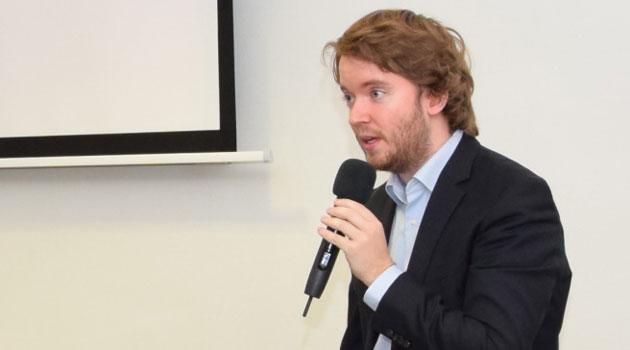Slovak Plenipotentiary for Romani Communities: We will focus on education and employment

The Government of the Slovak Republic took note on 25 June 2019 of the “Monitoring Report on the Fulfillment of the Strategy of the Slovak Republic for Romani Integration to 2020”, which monitors the fulfillment of the activities and measures outlined in the Action Plans for the Strategy in the areas of education, employment, financial inclusion, health, housing, non-discrimination and Romani community approaches toward the majority society during 2018, and which was undertaken by the Office of the Slovak Government Plenipotentiary for Romani Communities in association with the ministries and submitted to the Government by the Interior Minister. Of 154 activities and measures designed to be fulfilled during 2018, the Office of the Plenipotentiary assessed 85 as “fulfilled”, or “about to be fulfilled”, 54 as “underway” and 15 as “unfulfilled”.
“I’m very satisfied with the fulfillment of the integration activities and measures last year, our office has even better results to show this year than we did last year,” said Slovak Government Plenipotentiary for Romani Communities Ábel Ravasz. “However, there is always room for improvement, and we are currently hard at work on achieving that improvement.”
Almost EUR 120 million was spent last year on Romani integration in Slovakia. The investment was especially about activities to increase Romani employability and employment (EUR 75 million), educational activities (EUR 30 million) and the area of housing (EUR 7 million).
“In the area of employment, Labor Ministry activities were especially supported that aim to increase employability and employment, for example, in the so-called helping professions – community centers, social work in the field,” Ravasz explained. “Those activities have also played an important role in our seeing record low unemployment not just country-wide, but also directly in Romani communities.”
In the area of the schools, investments were made above all into increasing the capacities of nursery schools and preparations for introducing compulsory preschool attendance. The work of assistants in nursery schools and primary schools, as well as some other measures arranging for children from Romani communities to attain better results in the school system, were supported by projects of the Education Ministry and Interior Ministry.
“The Interior Ministry is supporting the building of infrastructure in Romani communities,” Ravasz said. “This is especially about access to potable water, community centers, nursery schools and waste management.”
“The ministry is also supporting the activity of local civic patrols (Místní Občanské Pořádkové Služby – MOPS), which are functioning in 2019 in more than 240 communities,” Ravasz said. In the area of health, a crucial role is currently being played by the assistants in a health outreach project called “Healthy Community”, while in the field of culture there is now an entirely new Fund for Cultural Support to National Minorities.
“These activities are carrying on previously-piloted ministerial projects,” the Plenipotentiary said. “These are instruments that have proven themselves, ones we need to preserve and strengthen.”
“The current outcomes are unequivocally positive, although this is a long-range endeavor,” he noted. “We do not need to invent new approaches, just to work systematically and systemically.”
“It is also necessary to arrange for synergies between legislative activities and these projects, as they can only be successful if the areas into which they ‘arrive’ have been legislatively prepared,” he said. The main aim of the Strategy is to halt the segregation of Romani communities and to achieve a positive turnaround with respect to their social inclusion, as well as a change in the attitudes of the majority toward Romani people.
